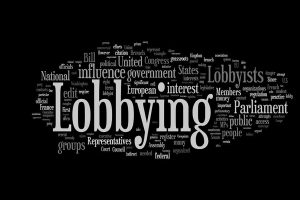We are in a period when the lobby activity becomes increasingly important, considering also the Emergency Ordinance project regarding the transparency in lobbying activities and representation of interests (the “Ordinance project”). The purpose thereof is to render transparent the relationship of public authorities with the business environment, so there is equality as regards the influence in the decision-making process.
What is lobby?
According to the Ordinance project, the lobby activity means “any organised and structured agreement with the public representatives for exercising an influence in the interest of a client, in the sense of the direct influence over the legislation activity and decision-making processes at the central and local public administration level.”
Therefore, the essence of the lobby activity is the action of influencing the persons responsible with the elaboration of public policies, in the sense of taking a certain position regarding a certain aspect comprised in the legislation, with the purpose of promoting the legitimate interests of a group.
Lobby is different from advocacy, which represents any action performed with the scope of influencing the public policies through different mechanisms (meetings, conferences, open letters etc).
Consequently, we do not consider that the definition of the lobby activity comprised by the Ordinance project does not reflect the essence thereof, as compared to advocacy.
How is the lobby activity performed?
Considering that the prerequisite of any lobby activity must be the promotion of both transparency and high standards of integrity, it is recommended that any type of legislation follows the principles of best practices in the field. The most known are the principles of the lobby activity stated by OECD1.
Without going into details in respect of these public principles, we consider that these 10 fundamental principles regarding the lobby activity must be accurately reflected by the national legislation regulating the lobby activity.
Therefore, even though the Ordinance project took as a model the Austrian legislation regarding transparency in lobby and representation of interests, and Austria is a member of OECD, we consider that the Ordinance project fails to reflect accurately the following principles of the lobby activity:
- Ensuring the transparency in a manner which will allow the public representatives, the lobbyists, the business environment, the citizens to obtain information regarding the lobby activity2. The Ordinance project provides the establishment of the Registry for lobby and representation of interests (the “Registry”), without going into details regarding the functioning method thereof and the access thereto. In this sense, article 8 paragraph (2) of the Ordinance Project provides the access of legal and natural persons to the data in the Registry only provided they may argue a primary legal interest in the sense of article 8 paragraph (2) of the European Convention for Human Rights3. It appears that article 8(2) of the Ordinance Project restricts the access of legal and natural persons without any clear reason and without mentioning the access method of such persons to the data comprised by the Registry.
Another method to ensure the transparency is that any legislative act should contain the precise identification of the lobbyist/ internal lobbyist/ association of interests/ representative of the groups of interests. Moreover, it is advisable that the issuers of public policies should also indicate the lobbyist/ internal lobbyist/ interests association/ representative of the groups of interests who tried to influence a certain legislative aspect4.
It is necessary that the secondary legislation regarding the lobby activities considers these aspects. - Creating and implementing of standards regarding the lobby activity, together with the monitoring of the fulfilment of such standards.
Considering the scope of the enactment of the lobby activity, we consider useful the elaboration and implementing of standards, principles, procedures to state the methods in which the public representatives may interact with the lobbyists and/or internal lobbyist and/or association of interests, with a scope to promote legitimate interests. Even though the Ordinance project generically states the interdictions and a conduct which must be followed by the public representatives according to the provisions of Law 161/2003 regarding some measures for ensuring the transparency in exercising public offices and within the business environment, we consider necessary a future regulation regarding the manner of communication and interaction of the public representatives with the lobby companies and/ or the companies which employ internal lobbyists.
Conclusions
The regulation of the lobby activity is welcomed in Romania, but this should be done judiciously and correlated with the other aspects of the lobby activity. Even though the Ordinance project is pretty lacunary, as we have pointed out above, our opinion is that the regulation of this activity must closely reflect OECD principles of transparency and integrity in lobby activities. Endeavours to create and implement the standards regarding the lobby activity must start, observing the principles of transparency and integrity, without losing sight of the fact that the final purpose of the lobby activity is taking a decision which serves legitimate interests.
Moreover, through the lobby activity the law-making process benefits from the expertise of specialists in a certain field, and the normative acts which would be issued pursuant to such joined effort, would better respond to the current economic and social requirements.





